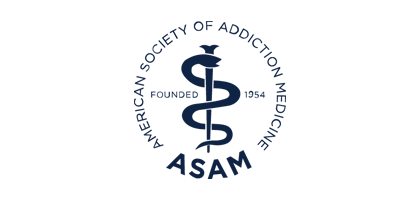Blog
The Results Are In: ASAM’s Take on the 2016 Election
After a long and bitter campaign season, American voters went to the polls this month and elected Republican Donald Trump to the Presidency. They also voted to keep both chambers of Congress under Republican leadership, which sets the stage for a rather unanticipated 2017 federal policy agenda. While political insiders and pundits are still assessing the election results and attempting to forecast what a Trump Administration might mean for various policy issues, most in Washington are in a wait-and-see mode.
Many unknowns remain, including what will happen to the various parts of the Affordable Care Act and who will be appointed to lead the Administration’s health care agencies, so we won’t attempt to make any grand predictions. However, we do have some insight into President-elect Trump’s thinking about the opioid overdose epidemic, which he addressed during an October speech in New Hampshire. In that speech, he praised his running mate Vice President-elect Pence for “increasing mandatory minimum sentences for the most serious drug offenders while expanding access to treatment and prevention options for those struggling with addiction.” He went on to outline his support for:
- Supply reduction, by
- Stopping the flow of illegal drugs in the country
- Prosecuting traffickers of illegal drugs and providing law enforcement additional resources
- Closing shipping loopholes that allow drugs to be sent to the US from China and other countries
- Demand reduction, through
- FDA approval of abuse-deterrent formulations
- Raising the cap on the number of patients physicians can treat under DATA 2000
- DEA reduction in the amount of Schedule II opioids made and sold in the US
- Expanding incentives for drug courts and mandated treatment
- Increasing access to treatment slots and “end Medicaid policies that obstruct patient treatment”
- Expanding first responders’ and caregivers’ access to naloxone
- Restoring accountability to the Veterans Administration
It’s unclear if or how the Trump Administration will advance these policies, but it is clear that the opioid epidemic will continue to be a motivating issue for politicians on both sides of the aisle as it continues to wreak havoc on their communities back home.
What else is clear is that our advocacy on behalf of patients with addiction and the field of addiction medicine is needed now more than ever, and we plan to work hard next year to protect and expand access to treatment. Over the course of the next few months, ASAM’s Leadership and advocacy team will be meeting with new Members of Congress and Administration officials to introduce our organization, share with them the issues of greatest importance to our members, and offer ASAM as a resource to them.
We will lay the groundwork, but your individual advocacy will be crucial to our success. Your perspective and expertise as an addiction medicine specialist is critical to inform the health care and addiction policy debates that we are sure to see next year. We know that hearing from constituents is highly influential with Members of Congress, so ASAM’s advocacy team will work to make that easy by giving you plenty of opportunities to weigh in on issues next year, including through a fall Advocacy Day on Capitol Hill. In the meantime, be sure to reach out to your Congressional delegation – newly elected and re-elected – to introduce yourself, say congratulations and that you look forward to working with them to expand access to addiction treatment next year!

